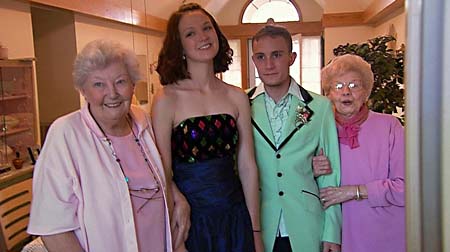American Teen
Year Released: 2008Directed By: Nanette Burstein
(PG-13, 95 min.)
In our modern Information Age, it is no longer possible to believe in documentaries as conveyors of unfiltered, unvarnished truths. Everything is transmitted through the eyes of the beholders, from the lens of the filmmaker to the perceptions of the viewers. Burstein’s American Teen, however, causes us to become aware of the power the subjects have to control their ultimate image and message. We used to fret over the extent to which a filmmaker’s presence altered the very nature of that which was under observation. American Teen shows us that we really need to pay more attention to the ways in which the media-savvy of the subjects can shape the outcome of the observation. The teens of Warsaw, Ind., the town in which Burstein’s documentary is set, were born into the era of reality TV, in which a spot on The Real World or American Idol means a ticket to instant celebrity, and the confidences once shared in diaries and incessant phone chatter are now unveiled on Facebook and MySpace for all the world to consume. They may not have known it, but these kids were ready for their shot at fame long before Burstein entered their midst and wired them up with portable microphone packs. What her cameras capture shouldn’t be construed as truth but rather as scenarios that were cast in stone long before she came on the scene. The five high school seniors she chooses as her main subjects could have come straight from Central Casting – or The Breakfast Club: They are the princess, jock, rebel, heartthrob, and geek. It’s senior year, so the film gains some dramatic strength from the kids’ uncertainty about their futures, but apart from that, the film records the usual teenage obsessions with social insecurities, who’s dating whom, and the hierarchies of cool. From the outset, it’s necessary to ask if these students are a truly representative lot or whether they’re stereotypes that fit Burstein’s preconceptions. Burstein’s judgment also becomes an issue, as we watch the occasionally despicable behavior of the teens (as during the plastering of hate graffiti on an opponent’s window or the merciless mocking of a defenseless newcomer whose naked torso has been IM’d throughout the town), while her unyielding camera practically spurs further action with its rapt attention. The artsy rebel Hannah Bailey (who is now studying filmmaking in college) experiences a depression so intense that it precludes her being able to attend school, yet she gladly allows Burstein’s camera into her bedroom and inner thoughts. Burstein (who previously co-directed The Kid Stays in the Picture and On the Ropes) ultimately tells us nothing about senior year in the heartland of America that we didn’t already know. However, the film’s revelations about our media-soaked society are revelatory. At times it’s almost like Lord of the Flies, with the camera serving as the flypaper dipped in the honey of the promised land of celebrity.
 Marjorie Baumgarten [2008-08-08]
Marjorie Baumgarten [2008-08-08]

No comments:
Post a Comment